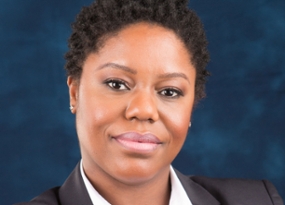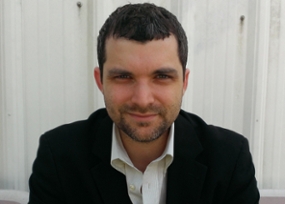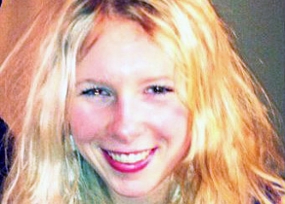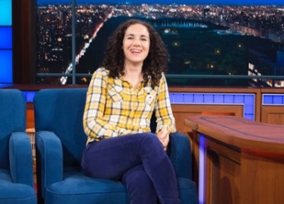One Summer, Infinite Rewards
Alumni of the College’s Branigan Scholars Grant program remember the projects that helped shape their career paths.
Earning a liberal arts degree requires more than attending lectures, memorizing facts and taking tests. Students are asked to reach outside their comfort zones: Read a book from a new genre. Consider an opposing viewpoint. Articulate an espoused value. It’s real; it’s personal.
Naturally, questions develop within. What makes a poem a poem? How are Latinos characterized on American television shows? Is there an underlying narrative of oppression in Caribbean literature?
Summer projects are an opportunity to explore those questions in depth while honing research, analysis and composition skills — all broader skills for success. The experience is often life-changing.
Manhattan College offers many funded research opportunities for students, however the oldest and most prestigious of them is the Branigan Scholars Grant. Established in 1976 by Edward Branigan ’40 with matching gifts from Exxon and support from the National Endowment for the Humanities Challenge Grant, the fund promotes undergraduate research in the humanities by awarding several grants per year for student-initiated projects. Each one is done in close collaboration with a faculty adviser.
Joan Cammarata, Ph.D., professor of Modern Languages and Literatures, has served as director of the Branigan Scholars since 1988, and has overseen the completion of more than nearly 50 full-length academic papers that now reside in the O’Malley Library Archives. She remembers them all.
“They were projects that the students loved,” Cammarata says. “They were so invested in getting these thoughts — thoughts that had nothing to do with their course work — across. Our alumni of this program are all so accomplished in their careers. They are driven and positive and they don't ever give up.”
These are just a few of their stories.
-
Altagracia Pierre-Outerbridge ’02, Tenant’s Rights Attorney, Himmelstein, McConnell, Gribben, Donoghue and Joseph LLP

Manhattan Majors: French and Biology
Project Title: “Oppression and the Struggle for Emancipation in Feminist Caribbean Literature”Altagracia Pierre-Outerbridge ’02 never backs away from a challenge. A native French speaker from Haiti, she earned the Modern Foreign Language program scholarship which covered half of the university’s tuition, but says she elected to add a major in Biology and minor in Chemistry out of “curiosity.” The Branigan Scholars Grant was an opportunity to delve into a topic that had long fascinated her: the struggles and triumphs of Black women in emerging economies.
Mary Ann O’Donnell, Ph.D., professor emerita and then dean of the School of Arts, and Dr. Marie Claire Picher served as her faculty advisers.
“It was a really intense experience,” she says, noting that she still talks about it with her husband, Lindrick. “Dean O’Donnell was tough; she edited my thesis five to six times, focusing on clarity of thought and syntax. It was truly eye-opening to write such an extensive piece on such an intense topic, especially as a young adult.” Her research resulted in a 100 plus-page dissertation.
At the time, Pierre-Outerbridge was unaware of how much her study of the narrative of oppression would shape her career and her perspective in life. Throughout her research, Altagracia was enthralled with the symbolism of the baobab, or mapou tree as a symbol of the struggle and the resistance. It was a constant reminder of the roots of the oppressed, she says, that they run deep.
“Picture a baobab tree: It’s grandiose, but not just for show, it is truly strong, it is impossible to uproot it,” she says. “I read about how language, mastered and made our own stories, passed down from our grandparents to us and to our children, are part of the resistance.”
Pierre-Outerbridge credits her father for her love of reading. As a child, her father avidly read and dissected the works of Haitian writers, and loved to discuss world politics during a time when Haiti underwent intense political struggles.
“The concepts from my Branigan Scholars project have sort of been in the background, a source of strength ever since,” she says. “As a professional, I see women who are struggling with oppression all the time, and I often connect them through the stories I read. The concepts and symbols I read, analyzed and wrote about are things that help me remain stable both for my family and myself, but also for anyone I encounter in both my professional and private life. I can offer them stability and inspiration, too, because that is what I gathered from my Branigan thesis.”
After graduation, Pierre-Outerbridge got involved locally as a door-to-door organizer for the Working Families Party, an organization focused on tackling the political, economic and educational inequality that deprives working and middle class families of opportunity. Looking to have a greater impact on the policies and laws that affected the families she met on her door-to-door visits, Pierre-Outerbridge was encouraged by her colleagues — most of whom had moved on to become attorneys — to pursue a degree in law.
She earned her Juris Doctorate from City University of New York School of Law at Queens College in 2006, and began working for a union that represented Verizon workers. Later in her career, she went on to join Tenant's Rights Unit of the New York Legal Assistance Group (NYLAG), where she served as Supervising Attorney, mentoring the attorneys and paralegals of the Manhattan Homelessness Prevention Law Project. The Manhattan Homelessness Project provided legal in-court representation and financial counseling to low income New Yorkers residing in Manhattan.
In the winter of 2017, Pierre-Outerbridge switched from the public to the private sphere, joining the tenants’ rights firm, Himmelstein, McConnell, Gribben, Donoghue & Joseph LLP, as a litigator. The firm focuses on and provides comprehensive representation to tenants, coop and condo unit owners.
Altagracia says she refers back to the project in her daily life, and looks to publish it one day, maybe during the golden years of retirement.
“I hope my son, Andrick, will one day read it and be proud of me.”
-
Gianmarc Manzione ’02, Editor, Luby Publishing; Poet, Nonfiction Author

Manhattan Majors: English and Philosophy
Project title: “Songwriting as Poetry”As an undergraduate student, Gianmarc Manzione ’02 was listening to a lot of singer-songwriters, and he wondered why the lyrics of Bob Dylan or Patti Smith weren’t recognized by the literary establishment as poetry. So, he dedicated a summer to the question through the Branigan Scholars program, with Rocco Marinaccio, Ph.D., professor of English, as his faculty adviser.
“Rocco really forced me to think very closely about what exactly a poem is, and what, if anything, are the most obvious distinguishing characteristics between the genres of poetry and song-writing. He really challenged me, and really pushed me to the limit of where I was trying to go. It was a blast.”
(In fact, Manzione received a Facebook message from Marinaccio the day after Bob Dylan was awarded the Nobel Prize in Literature in 2016 congratulating him on his forethought.)
Manzione first fell in love with literature as a sophomore at Xaverian High School in Brooklyn, under the tutelage of English teacher Ed Breslin. When he arrived at Manhattan, he was thrust into a community of “very supportive, very nurturing people,” which included professors Ashley Cross, Ph.D., and Marinaccio, of the English department, and Alfredo DiLascia, Ph.D., and Rentaro Hashimoto, Ph.D., of the Philosophy department.
“It was the combination of those individuals in particular, plus my experience writing for The Quadrangle that really planted this idea in my head that maybe I was going to be a writer,” Manzione says. “They inspired me to pursue graduate study.”
After graduating from Manhattan, Manzione went on to earn an MFA in creative writing from the New School. He carved out his niche early, writing about bowling, a longtime passion. He is currently the editor of four magazines under Luby Publishing, including Bowlers Journal International, which is the oldest monthly sports magazine in the country.
“It’s a sport whose history I've come to know very well, and the only reason I'm able to write for a living,” says Manzione. “It’s a great opportunity and something that I'm blessed to do.”
Aside from his full-time job, Manzione’s work has been widely published and highly acclaimed, including a chapbook, The Panic Inside the Stars, which was a finalist for the New American Poetry Prize, and earned second honorable mention in The Comstock Review’s Writers Group 2016 Chapbook Contest. He’s also written a nonfiction book PIN ACTION: Small-Time Gangsters, High-Stakes Gambling, and the Teenage Hustler who Became a Bowling Champion (Pegasus Books/W.W. Norton, 2012). It was based on his New York Times story, “When Thugs and Hustlers Ruled Dark Alleys,” which was named among Columbia Journalism Review’s “must-reads of 2012.”
Manzione is currently working on a second nonfiction book about the only major hurricane to make landfall directly on New York City, which occurred in 1821.
His advice to aspiring writers is to specialize in a particular field of interest.
“I think maybe finding that niche, that very specific area of expertise as a writer is a way that Manhattan University students could carve a path for themselves as writers upon graduation,” he says.
-
Elizabeth Harris ’08, Literary Department Chair, Achievement First Brooklyn High School

Manhattan Majors: English and History
Project Title: "Lighting Out for the Territory: Ecocritical Perspectives on American Road Trip Narratives."For Elizabeth Harris ’08, the Branigan Scholars Grant provided the opportunity to hone in on her writing skills. As a student, she viewed the project as crucial to her development as a double major in English and history — two writing and reading intensive areas of study — and it would prove even more valuable in the years to come.
The idea for the project, which focused on American travel narratives came out of Harris’s first class with Jeffrey Myers, Ph.D., professor of English — Advanced First Year Composition. It was the first time she had encountered ecocriticism, the study of literature that illustrates environmental concerns and examines the various ways literature treats the subject of nature. She wanted to learn more about the field.
“Jeff Myers really took time to teach me how to write,” Harris says. “He taught me how to find an original topic, how to manage multiple sources and synthesize. Most of all, he taught me how to argue — that’s a really hard skill to master especially at the undergraduate level. I became much more selfaware.”
After graduation, Harris served as a 10th grade English teacher at Agua Fria, an ethnically diverse high school in Avondale, Ariz., as part of Teach for America. During this time she also earned her master’s degree from Arizona State University. (Read more.)
While she enjoyed the change of scenery (and climate), Harris ultimately missed the East Coast. She took a position teaching 10th grade English at Achievement First Brooklyn High School in 2010, one year after the school was established. Getting in on the ground floor led to many leadership opportunities, from developing course curriculums to leading district-wide professional development workshops. Today, she is the literature department chair and teaches AP English Language and Composition, which is the capstone course for the humanities.
“I really believe in the mission of this school, and I love the idea of building something — it’s really rewarding,” Harris says, noting that it’s similar to working on a Branigan Scholars project. “To succeed, you have to be dedicated and passionate about it. I really want to help close the achievement gap.”
In addition to teaching, Harris is pursuing a master’s degree in literature from the Middlebury Bread Loaf School of English. She will graduate in summer 2017.
“The Branigan Scholars Grant completely shaped my career — I wouldn’t have made my career choices if it hadn’t been for that incredible experience,” Harris says. “I have enormous pride coming out of the humanities departments at Manhattan University and the professors there. They had a tremendous impact on me, and I often try to channel them in the classes that I teach.”
-
Meg Driscoll ’10, Audio Producer, Gimlet Media

Manhattan Majors: Communication and Spanish
Project Title: “The Representation of Latinos on Television”Meg Driscoll ’10 always wanted to do a research project, but when she learned about a particular area of media studies called media ecology, she knew she wanted to go for the Branigan Scholars Grant. The topic she ultimately proposed, “The Representation of Latinos on Television,” was the culmination of conversations she had with Rodney Rodriguez, Ph.D., former chair of the Modern Languages & Literatures department, and Thom Gencarelli, Ph.D., then chair of the Communications department.
“My approach to the study ended up being more quantitative than qualitative, so it was more in the area of media studies instead of being about the history of Latinos on television,” Driscoll remembers. Gencarelli, her faculty adviser, gave her the flexibility to design her project while helping to refine her methodologies.
“The project required me to learn different methods of analysis,” she says. “I had to reach back into some of my high school statistics knowledge. It ended up in areas that I did not expect. It was definitely rigorous.”
During her senior year, Driscoll lined up an internship at The Daily Show, and later The Colbert Report. While she continued filling out applications for post-graduation pursuits, from graduate school to Lasallian Volunteers, she held out hope that a full-time gig would open up. So, after graduation she stayed in touch, working on a freelance capacity until landing a production assistant role — at The Colbert Report, where she would stay for 5 years before moving on to The Late Show with Stephen Colbert.
“I met a lot of really kind and interesting and like-minded people there, who were obviously very funny,” she says. “I remember feeling a certain amount of relief there, like ‘oh, thank God, this is where all my people are.’ I felt very at home.”
But after years of supporting creative teams, Driscoll was ready to produce something creative of her own. She is now an audio producer for Gimlet Media, an award-winning narrative podcasting company that aims to help listeners better understand the world and each other. She learned audio editing and production, and her job allows her to do some investigative reporting.
“I was helping people make great things, and that can be really rewarding, but I think at a certain point at least for me it was just like, I didn't want to watch on the sidelines anymore, I wanted to be able to do it.” In doing so, Driscoll learned that good research has the same definition in any language.
“I may have learned a whole different industry, but I’m still doing a lot of research,” she says.